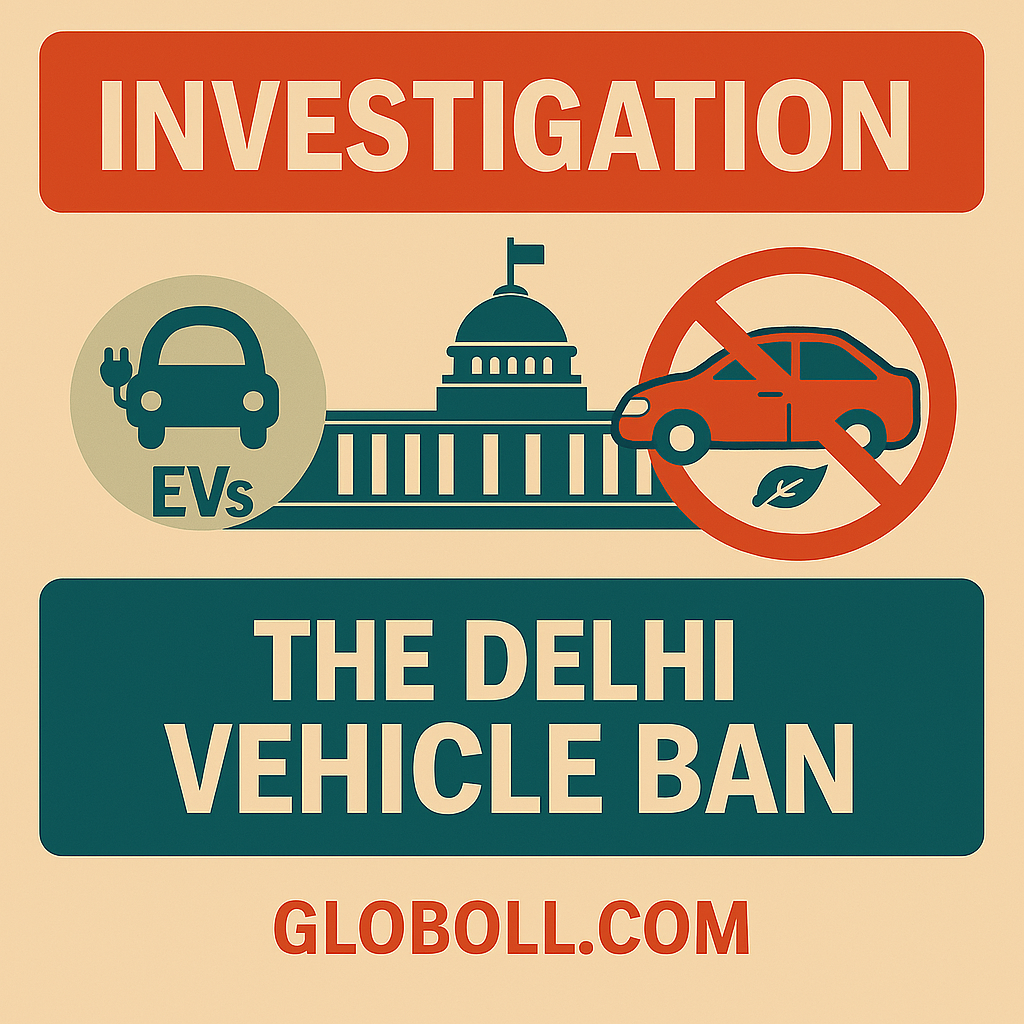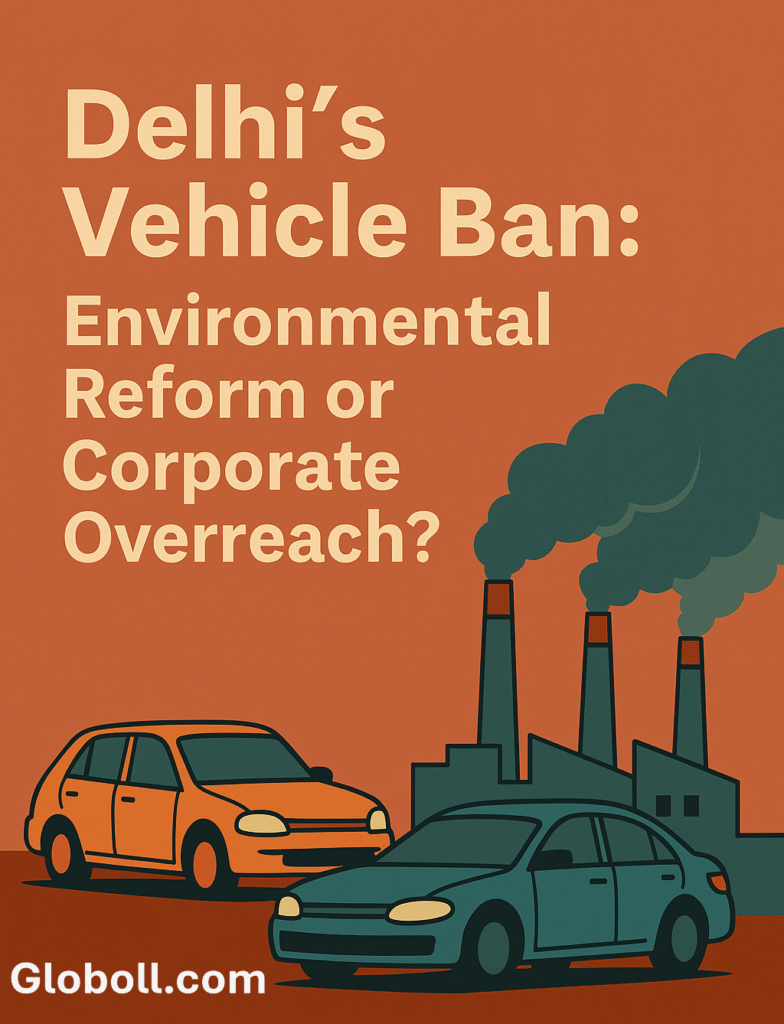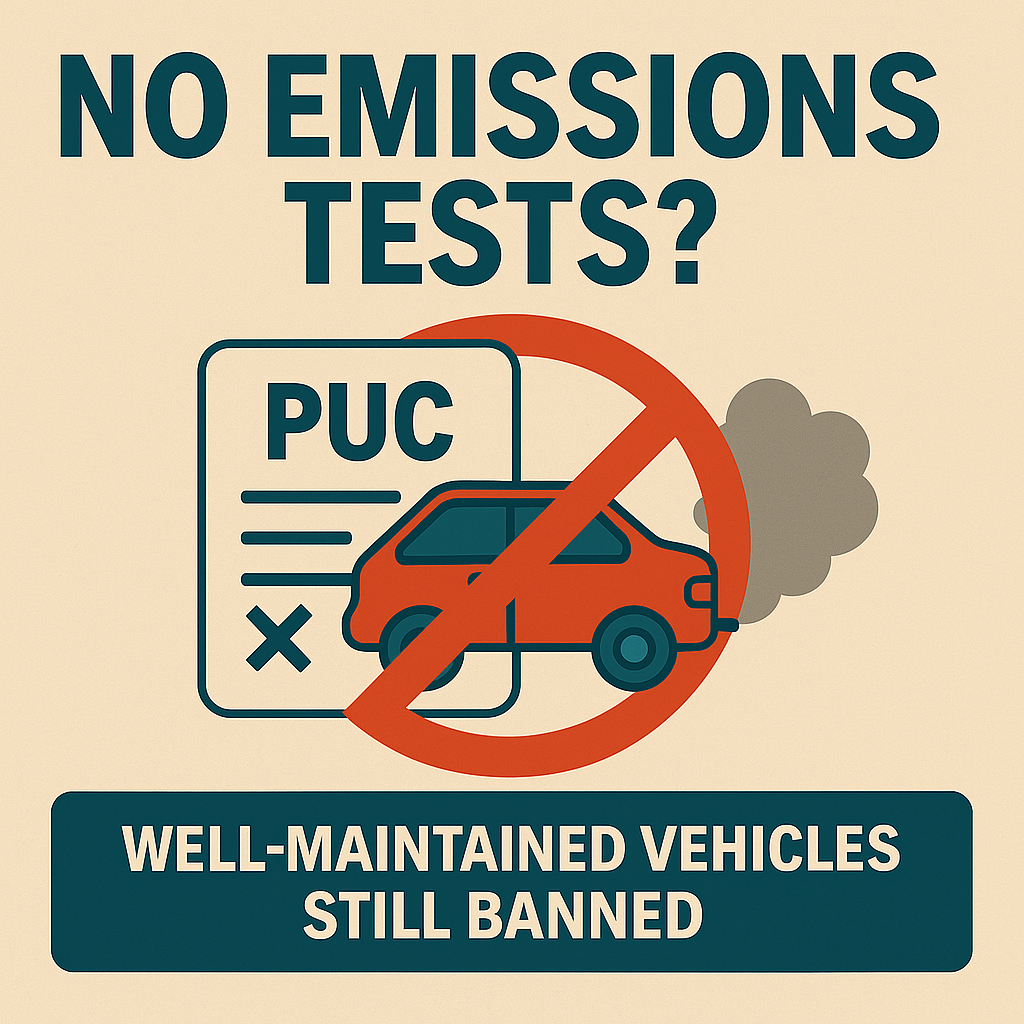
Introduction
In a city choking on pollution, Delhi’s recent ban on petrol vehicles older than 15 years and diesel vehicles older than 10 years was framed as a bold environmental move. But beneath the surface lies a troubling mix of opaque policymaking, corporate lobbying, and potential violations of citizens’ constitutional rights.
This article investigates the real forces behind the ban, its impact on ordinary citizens, and the legal remedies available to those affected.
🔍 What Is the Delhi Vehicle Ban?
The ban, enforced under the National Green Tribunal (NGT) and Supreme Court directives, prohibits:
- ⛽ Petrol vehicles older than 15 years
- 🛢 Diesel vehicles older than 10 years
Even if these vehicles pass pollution checks and are well-maintained, they are barred from Delhi roads. Fuel stations have installed ANPR (Automatic Number Plate Recognition) cameras to deny fuel to these vehicles.
⚠️ Why the Ban Is Controversial
❌ Age-Based, Not Emission-Based
- No emissions data has been released to justify the age cutoffs.
- Vehicles with valid Pollution Under Control (PUC) certificates are still banned.
- No buyback or compensation schemes exist, forcing citizens to scrap valuable assets.
🏛 Selective Enforcement
- Government-owned polluting vehicles often escape scrutiny.
- Citizens face heavy penalties, while institutional violators go unchecked.

🏢 Corporate Lobbying: The Invisible Hand?
Several developments suggest that India’s electric vehicle (EV) and hybrid lobbies are influencing policy:
| Lobbying Actor | Alleged Influence |
|---|---|
| Tata, Mahindra, Hyundai, MG | Lobbied against hybrid incentives to protect EV market share |
| Tata Motors | Opposed Tesla’s entry by supporting high import duties |
| Toyota & Maruti Suzuki | Secured tax waivers for hybrids in Uttar Pradesh |
| EV Industry | Pushed back against hybrid tax breaks, fearing loss of momentum |
This raises serious concerns about regulatory capture — where private interests shape public policy for profit.
⚖️ Legal Remedies for Affected Citizens
If your vehicle has been seized or you’ve been unfairly penalized, here’s what you can do:
🛠 How to Reclaim Your Vehicle
- Check Vehicle Status Visit VAHAN or Delhi Transport Portal to verify if your vehicle is seized, scrapped, or auctioned.
- Submit Ownership Proof Gather your RC, insurance, PUC certificate, and any fine receipts.
- Apply for Release File an application with the RTO. Some vehicles may be released after passing fitness and emissions tests.
- Appeal Wrongful Seizure If your vehicle was wrongly impounded, you can file a legal appeal or request exemption.
- Re-register or Scrap If recovery isn’t possible, explore re-registration outside Delhi or scrap with incentives.
🧾 Your Constitutional Rights
The Indian Constitution guarantees several fundamental rights that may be violated by arbitrary vehicle bans:
| Article | Right | Relevance |
|---|---|---|
| Article 14 | Right to Equality | Discriminatory enforcement violates equal treatment under law |
| Article 19(1)(g) | Right to Practice Any Profession | Bans may affect livelihoods of drivers, transporters, and small businesses |
| Article 21 | Right to Life and Personal Liberty | Includes the right to livelihood and mobility |
| Article 32 & 226 | Right to Constitutional Remedies | Citizens can approach the Supreme Court or High Courts for redress |
If you believe your rights have been violated, you can file a writ petition in the Delhi High Court or Supreme Court.
📢 What Citizens Can Do
- 🧠 Demand data-driven, transparent policymaking
- 📜 Call for emissions-based regulation, not arbitrary age limits
- 💬 Join public consultations and civic forums
- ⚖️ Use legal channels to challenge unfair enforcement
🧭 Final Thoughts: A Call for Accountability
Delhi’s vehicle ban may have noble environmental intentions, but its execution reveals a troubling pattern of corporate influence, policy opacity, and disregard for citizen rights. If India’s green future is to be truly just, it must be built on transparency, fairness, and constitutional integrity.

📌 Stay informed. Stay empowered. Share this article to raise awareness and demand accountability.
